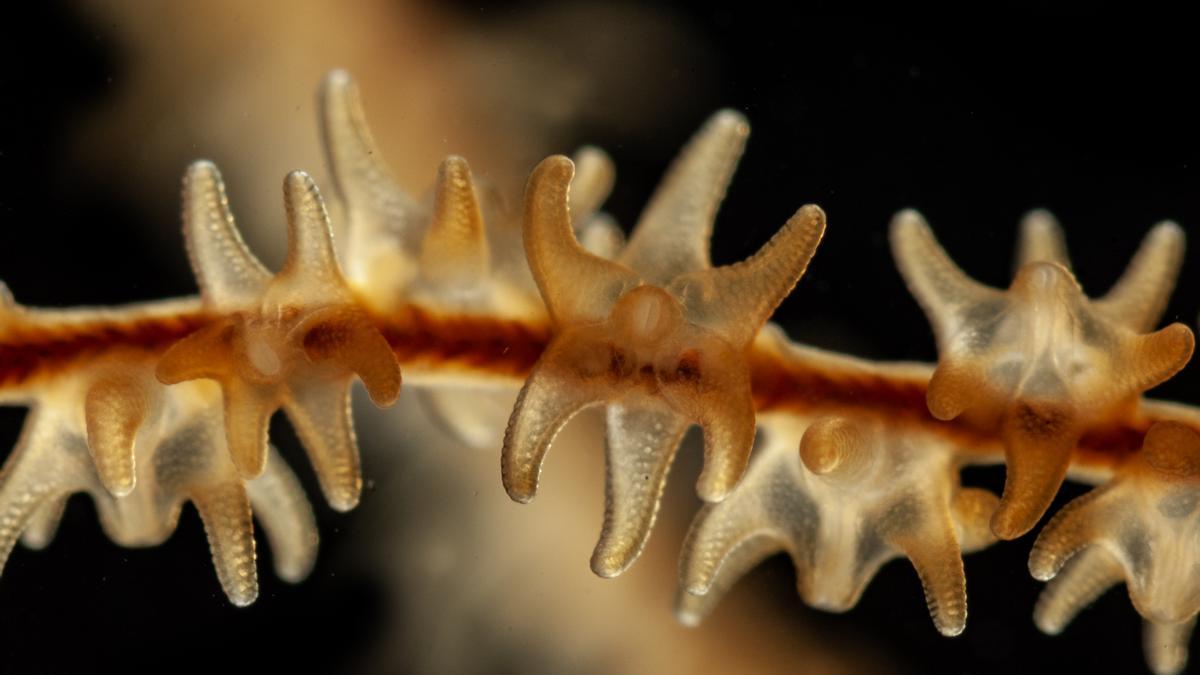UNKNOWN CORAL REEF FOUND IN THE ATLANTIC

In a stunning turn of events, a group of divers has discovered a vast, previously unknown coral reef in the depths of the Atlantic Ocean near the Canary Islands. This finding, considered one of the most significant of the last decade, promises to shed new light on marine biodiversity and ecosystem conservation.
The discovery was made by a team of local divers and marine scientists during a routine expedition. "We were exploring an area known for its natural beauty, but what we found exceeded all our expectations," said Javier Martín, the team leader. "As we descended to about 30 meters, we began to see brightly colored corals and a diversity of marine life we had never seen before."
The reef, which stretches for several kilometers, is home to a wide variety of marine species, many of which could be unknown to science. Among the most notable finds are several species of fish, invertebrates, and marine plants that had not previously been recorded in this region. Scientists are particularly excited about the potential to discover new species and better understand biodiversity patterns in the Atlantic.
"This reef is a hidden treasure that offers us a unique glimpse into marine life," explained Dr. Laura Sánchez, a marine biologist from the University of La Laguna. "It provides us with an invaluable opportunity to study how these ecosystems function and how we can protect them from threats like climate change and pollution."
The discovery also has significant implications for conservation. Coral reefs are known to be biodiversity hotspots and play a crucial role in the health of the oceans. However, they are threatened by a range of factors, including rising sea temperatures, ocean acidification, and human activity. Identifying this new reef could lead to the implementation of new protection and conservation measures in the region.
Local authorities have already expressed their interest in protecting this newly discovered ecosystem. "We are committed to working with scientists and environmental organizations to ensure this reef is preserved for future generations," declared Ana Rodríguez, a regional government spokesperson. "This discovery underscores the importance of our conservation efforts and the need to continue exploring and protecting our oceans."
The team of divers and scientists will continue studying the reef in the coming months, hoping to uncover more secrets of this fascinating underwater ecosystem. Meanwhile, the scientific community and diving enthusiasts around the world celebrate this incredible discovery, which reminds us of the immense wonder and mystery that still lies beneath the ocean waves.
The discovery was made by a team of local divers and marine scientists during a routine expedition. "We were exploring an area known for its natural beauty, but what we found exceeded all our expectations," said Javier Martín, the team leader. "As we descended to about 30 meters, we began to see brightly colored corals and a diversity of marine life we had never seen before."
The reef, which stretches for several kilometers, is home to a wide variety of marine species, many of which could be unknown to science. Among the most notable finds are several species of fish, invertebrates, and marine plants that had not previously been recorded in this region. Scientists are particularly excited about the potential to discover new species and better understand biodiversity patterns in the Atlantic.
"This reef is a hidden treasure that offers us a unique glimpse into marine life," explained Dr. Laura Sánchez, a marine biologist from the University of La Laguna. "It provides us with an invaluable opportunity to study how these ecosystems function and how we can protect them from threats like climate change and pollution."
The discovery also has significant implications for conservation. Coral reefs are known to be biodiversity hotspots and play a crucial role in the health of the oceans. However, they are threatened by a range of factors, including rising sea temperatures, ocean acidification, and human activity. Identifying this new reef could lead to the implementation of new protection and conservation measures in the region.
Local authorities have already expressed their interest in protecting this newly discovered ecosystem. "We are committed to working with scientists and environmental organizations to ensure this reef is preserved for future generations," declared Ana Rodríguez, a regional government spokesperson. "This discovery underscores the importance of our conservation efforts and the need to continue exploring and protecting our oceans."
The team of divers and scientists will continue studying the reef in the coming months, hoping to uncover more secrets of this fascinating underwater ecosystem. Meanwhile, the scientific community and diving enthusiasts around the world celebrate this incredible discovery, which reminds us of the immense wonder and mystery that still lies beneath the ocean waves.
